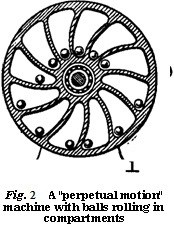Deistic and semi-deistic accounts of God’s creation of the natural world still appear to have much appeal for “sciency” types nowadays, and especially for Evolutionary Creationists. Even in “moderate” minds, which judge God capable of determining, or at least foreseeing, the outcomes of evolution in particular and world events in general, there appears the need to retain an unbroken lawlike chain of material causes. In other words, science must be able to give a more or less complete account of God’s works, at least in the “natural creation”. For God to “interfere” with that chain must be considered at best rare, but in reality a rather distasteful concept altogether.
Much of such opposition to God’s “changing” the expected course of events goes back to the argument of the Deist Leibniz against Isaac Newton, which I’ve mentioned a few times at The Hump. Leibniz wrote:
Sir Isaac Newton and his followers have also a very odd opinion concerning the work of God. According to their doctrine, God Almighty wants to wind up his watch from time to time: otherwise it would cease to move. He had not, it seems, sufficient foresight to make it a perpetual motion…
Newton’s friend Samuel Clarke replied:
And as those men, who pretend that in an earthly government things may go on perfectly well without the king himself ordering or disposing of any thing, may reasonably be suspected that they would like very well to set the king aside: so, whosoever contends, that the beings of the world can go on without the continual direction of God… his doctrine does in effect tend to exclude God out of the world.
 Clarke voices well the principle objection – the Christian revelation is of a God who desires to interact with his Creation. But I want to look today at the reasons why anyone might wish to make a perpetual motion machine, in Leibniz’s sense of a system operating without external adjustment (or “decision nodes” in computer speak). We could maybe start with his own example of a self-winding watch, which didn’t exist in his time but is commonplace now. Indeed, the first dubious claim of a self-winding watch was by Joseph Tlustos in 1773, and the myth of perpetual motion was intrinsic to his description.
Clarke voices well the principle objection – the Christian revelation is of a God who desires to interact with his Creation. But I want to look today at the reasons why anyone might wish to make a perpetual motion machine, in Leibniz’s sense of a system operating without external adjustment (or “decision nodes” in computer speak). We could maybe start with his own example of a self-winding watch, which didn’t exist in his time but is commonplace now. Indeed, the first dubious claim of a self-winding watch was by Joseph Tlustos in 1773, and the myth of perpetual motion was intrinsic to his description.
The reason such watches were developed was to prevent people losing their time through forgetting to wind their watch, or to save them the labour of so doing, or to prevent them causing damage by overwinding the spring. One might add that commercially the gimmick of achieving such a technical feat must have made people buy them just to impress others (I remember my father showing this feature off to friends on his first decent watch back in 1961 – this motive is still at the heart of R&D from smartphones to car styling). But it takes very little thought to realise that none of these apply to God as Creator. Let’s take a closer look.
- Forgetfulness is scarcely applicable to an omniscient God. If Newton were right, and God had so designed the solar system that he would adjust the orbits of the planets once in a while, it is inconceivable that he would forget because he was busy elsewhere.
- Neither would God have any need to save himself the labour of involvement with the world, as if like Baal at Mount Carmel he were susceptible to fatigue. To the Deists, God was a distant figure dwelling in the realm of pure reason, and so preferred not get his hands dirty with the world. But since in classical theology God actively sustains each part of the Universe in being from moment to moment, labour costs are entirely irrelevant to him.
- We wouldn’t imagine God as likely to overwind his own watch, but more seriously much automation nowadays is intended to perform tasks beyond the capability of human operators. Only yesterday, a doctor was saying on the radio that technology has now reached the point where he would rather trust a computer-generated report from a scan than the opinion of a trained radiologist. More generally, we are used to computers which perform tasks which, if humanly possible at all, would take an army of people centuries to calculate. But eternal omniscience entirely removes such considerations from God: we may find silicon faster than the brains we find ourselves with, but God made the silicon as well as the brains.
- Within Leibniz’s quote above is a sense that God would be much cleverer to make his universe self-winding rather than manual. Such value judgements have always been at the heart of naturalism. Darwin, for example, spoke at the close of The Origin of Species of “grandeur in this view of life”, and Charles Kingsley picked up the idea in his review at its publication in a famous passage:
…I have gradually learnt to see that it is just as noble a conception of Deity, to believe that he created primal forms capable of self development into all forms needful pro tempore and pro loco, as to believe that He required a fresh act of intervention to supply the lacunas which He Himself had made. I question whether the former be not the loftier thought.
 The relative loftiness of automation as opposed to involvement is, as Clarke suggested to Leibniz, something of an illusion, because it depends upon what God intended when he made the world. If, to use an analogy that I’ve used before, he intended the cosmos as a Steinway concert grand on which to perform, rather than as an automatic pianola, then most people would prefer a live performance by Sergei Rachmaninov, Scott Joplin or Fats Waller than to stick a piano-roll in a machine, once the novelty of the latter wore off.
The relative loftiness of automation as opposed to involvement is, as Clarke suggested to Leibniz, something of an illusion, because it depends upon what God intended when he made the world. If, to use an analogy that I’ve used before, he intended the cosmos as a Steinway concert grand on which to perform, rather than as an automatic pianola, then most people would prefer a live performance by Sergei Rachmaninov, Scott Joplin or Fats Waller than to stick a piano-roll in a machine, once the novelty of the latter wore off.
 Some of the most impressive “perpetual motion machines” closer to the time of Leibniz were the automata (about which I wrote here) which impressed, and still impress, observers by their ability to mimic a real person. Though there was a serious philosophical point behind them, ie to demonstrate that people are themselves only mechanical machines, the wonder of being able to do God’s acts after him, as a mere clockmaker, must have been very much part of the challenge.
Some of the most impressive “perpetual motion machines” closer to the time of Leibniz were the automata (about which I wrote here) which impressed, and still impress, observers by their ability to mimic a real person. Though there was a serious philosophical point behind them, ie to demonstrate that people are themselves only mechanical machines, the wonder of being able to do God’s acts after him, as a mere clockmaker, must have been very much part of the challenge.
The same is true, surely, of AI research today. Making robots may perhaps tell us more about how we ourselves work, and talk about saving people from menial tasks, or more realistically corporations from expensive labour, is much to the fore. But if drawing your wife so it actually looks like her is satisfying, how much more heady must be the experience of making a machine that is like a person?
But God isn’t imitating nature: he makes real people. And he has no need whatsoever to prove his mechanical ability by making a self-winding watch or some more sophisticated automaton like self-regulating universe. One might argue that it will increase his glory, but for every scientist impressed with a universe that runs on its own, there are thousands of souls prostrated before the throne of God because he gave his Son to the world to live as an ordinary man and involve himself with us to the point of death on our behalf.
 I might add another reason for automation, and that is the enforced absence of the operator. In Robert Heinlein’s Foundation science fiction trilogy, the “psychohistorian” Hari Seldon leaves automated holograms behind after his death, to keep his followers in touch with what to expect from the next stage of his infallible predictions about galactic history (until an unforeseen mutant inconveniently messes up the course of history). Had Seldon been immortal, he could have delivered his addresses in person, and even recalculated in the light of the mutant Mule.
I might add another reason for automation, and that is the enforced absence of the operator. In Robert Heinlein’s Foundation science fiction trilogy, the “psychohistorian” Hari Seldon leaves automated holograms behind after his death, to keep his followers in touch with what to expect from the next stage of his infallible predictions about galactic history (until an unforeseen mutant inconveniently messes up the course of history). Had Seldon been immortal, he could have delivered his addresses in person, and even recalculated in the light of the mutant Mule.
But God is immortal, and omnipresent, and so that reason for a “perpetual motion” universe also falls to the ground. To certain modern scholastics, perhaps God is intrisically incapable of being a cause within the Universe lest he lose his unique essence, as I discussed here, and this seems to make them favour a scientifically closed world of nature – though as I point out in that piece, even if that were true it wouldn’t follow that God would have to create such a closed universe rather than one where wonders abound every day, or where cause and effect don’t even operate at all.
The reason he has not done so, and has created reality at least partly tractable to science is his faithfulness, in the form of his gracious provision of nature in the sense I have recently sought to define it, that is as regularity and repeatability. This not only makes science possible, but underpins all life, because it is what makes learning – of even basic truths, like the potability of water – possible.
But just as in human interactions, we rely on consistency as a background against which novel behaviours and communications occur, so in the world as a whole it is the mixture of order and contingency that gives existence its richness. The perpetual motion machine does not answer the needs of man or the purpose of God – which is as much as to say that you can’t have a real relationship with an automaton.

I am a Heinlein fan as well as an Asimov fan, and have probably read more of the latter. I’m pretty sure that Asimov was the author for the entire Foundation series (unless Heinlein got in on that act at some point too!)
I’ve enjoyed (and remember more) some short stories from both. I do remember enjoying what would have been (at that time) the entire Foundation series, though I may not have read some later additions to it, I guess. My son is just starting up on that series, and discussing it with him slowly brings back memories.
One Asimov short story that left an impression on me (even before I became a math teacher!) was that of a futuristic savant who figured out how to calculate arithmetic problems himself on pencil and paper with no mechanical computing aid. He was rushed quickly to the top echelons of military strategists (since we were in that time at war with another planet). And they proceeded to get very excited that such a thing was even possible. Now they could send up in less expensive space craft human pilots who could do these things for themselves. No longer would they have to be limited to computational mechanics and the associated complications slowing down their war time productions. The mechanical yoke was broken.
My older son has also enjoyed (and read much further than I have) into the classic Dune series. They too had a beef to pick with computers which, in that universe, had rather apocalyptically turned on their human creators. The mechanical mind is indeed often at least a background presence in scifi plots if not woven into the central theme itself.
On another subject, I’ve started in on a chronological “wall of history” that I hope will soon grace the periphery of my classroom with at least a course presence of some of the great thinkers of mathematical / scientific (and wider spirit of natural philosophy) tradition. Among my next homemade posters to go up will be I think, both Newton and Leibniz. I know most would quite willingly put up Newton alone, but I’m refusing on principle to let him appear there without Leibniz just knowing something about Newton’s unfortunate paranoia and refusal to allow Leibniz his due. For Newton my (necessarily short an oversimplifying) tag lines — after the obligatory mentions of calculus and gravitation could include lines about “standing on the shoulders of giants” (I know he was quoting an earlier speaker –but that humility seems so fitting and exemplary in his mouth). For Leibniz (again — obligatory calculus reference which alone earns him a spot on my wall) could have some other interesting mentions too. Didn’t Voltaire mock Leibniz for promoting that this is “the best of all possible worlds”? Given what you write above, would you characterize Leibniz as the quintessential deist? What short caption would you give to him (perhaps say in contrast to Newton) if you wanted to capture something of either of their contributions to this time-honored conversation that still continues today?
Mea culpa – I much prefer Asimov to Heinlein, the books are on my shelf, and I still got it wrong. Beware of age, Merv!
I remember that story of the human calculator (and how the authorities assumed it was a trick and he had a calculator hidden somewhere).
Leibniz must go on your wall of course. I would be hesitant to make him the index Deist, lacking sufficient background in the movement which, I believe, was considered an English one. I can, however, recall something of his “best of all possible worlds” thesis, which wasn’t that the universe is a paradise despite appearances, but that God is constrained by what is possible. Therefore he or we could maybe think of better worlds, but they just wouldn’t work.
It does seem that he believed in the material determinism of a closed system of “laws of nature” that gradually squeezed God out of science and society, and maybe that would form the basis of your strapline. He also, significantly, developed the modern approach to theodicy that replaced the mystery of God with a paralyzing dilemma – “God can’t be both omnipotent and all-loving if there is suffering.”
I’m just about finished with a book a friend bought for me: “On Guard” by William Lane Craig (2010). It isn’t something I would have sought to read of myself, but once I started I was glad for the exposure and challenge (for me.) In fact it would seem that Craig echoes (resurrects?) Leibniz’ “best of all possible worlds” thesis. Craig does in fact explicitly state that it is silly to expect God to do logically contradictory things — and given that, who are we to be any kind of ultimate judges about how much suffering is necessary in a free-will populated universe. I’m in basic agreement with that, though one must always acknowledge how easy it is to speak that way about intense suffering when it is not, at the moment, afflicting you or your immediate loved ones. Also, the wisdom of acknowledging our limited view of, well … everything, is captured well in this video of an apparently Chinese proverb.
Where Craig would *not* follow Leibniz, though, would be in the latter’s conviction that God would not deign to operate in a well-tuned universe. I read up more on Leibniz thoughts on that — thanks for your suggestion.
Merv
I’ve not read Lane Craig on this, but I’d say there is a subtle difference between saying that we can’t judge how much suffering is “too much” if any exists at all, and Leibniz’s suggestion that God couldn’t do any better than this world because of constraints.
Herbert McCabe, in a passage I do like a lot, puts it in terms of suffering being intrinsic to the very kind of world this is, ie a world of change. He makes a convincing case.
The difference, I think, is mainly that the latter view is not forced to say that this is the best world that could be made, but that it is good because it suits the purposes God has for it – which allows for the presence even of real evil (such as human wickedness), being subservient to the ultimate good that God (and not the philosophers!) has in mind.
That leaves theodicy back where, in my view, the Bible puts it and where it belongs – in the right of the potter to create without the clay second-guessing him. The goodness of God is then an inference from faith, not logic or emotion.
You wrote: “The difference, I think, is mainly that the latter view is not forced to say that this is the best world that could be made, but that it is good because it suits the purposes God has for it …”
Craig wasn’t advancing the “best of all possible worlds” scenario in a positively affirming way so much as he was using it (I believe) as a sort of minimally demonstrated weakness in the atheist argument that suffering cannot coexist with a loving, omnipotent God. So I probably misrepresented Craig there in my brief reply. Even so, your point is well-taken and will be the cause of further percolation on this side of the puddle …